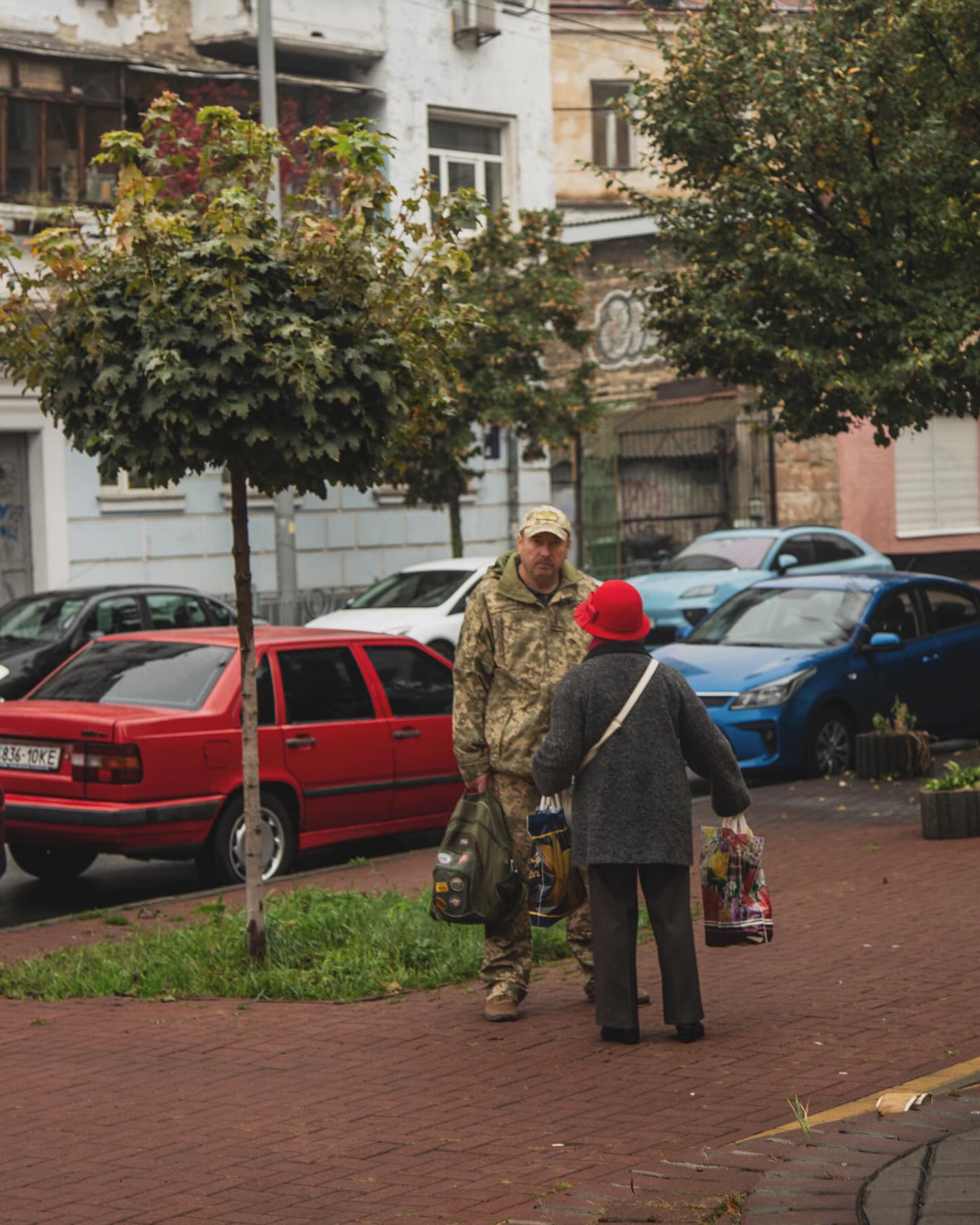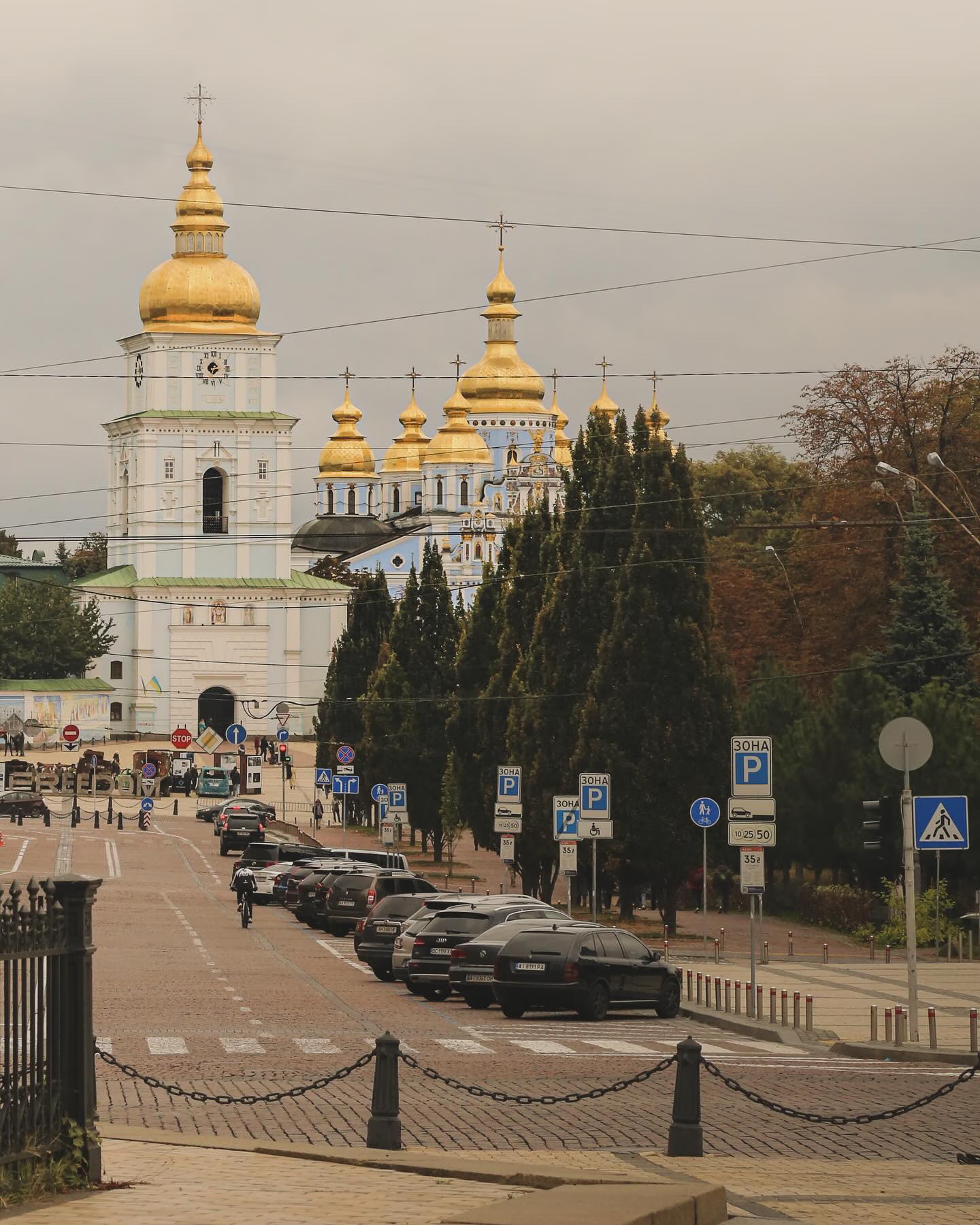Since 2022, a notion has taken root in the public sphere—repeated on Ukrainian television, echoed by opinion leaders and often voiced by European politicians—that criticising Ukraine or its leadership during a full-scale war is unacceptable because it supposedly plays into Russia’s hands. This logic quickly became an unspoken norm, effectively narrowing the space for discussing mounting problems.
In these conditions, the most favourable environment in 34 years of independence emerged for potential abuses: public oversight weakened, uncomfortable questions were postponed, and many government decisions went unexplained. Recent scandals only confirmed what for a long time was considered inappropriate to discuss openly.
Kyiv remains a city where the war is felt every day: regular air-raid alerts, children studying in basements, conversations about losses and about how attitudes toward the authorities are changing. In recent months, dissatisfaction with the president and his inner circle has been voiced more frequently than just a few weeks ago. The latest corruption scandal has shattered trust entirely and became the point after which questions that had lingered since 2022—but were previously left unspoken—began to surface like an avalanche. Now these issues are addressed openly—from decisions made in the first months of the war to circumstances long deemed too uncomfortable for public discussion.
On one of the central streets, Andriy, an engineer, says he voted for Volodymyr Zelensky in 2019. “The disappointment began long before the full-scale invasion. The first corruption stories involving his inner circle were a warning sign. After 2022, his approval rose, but not for long,” he notes. According to him, the main topics of conversation now are failures on the front line and forced mobilisation. Many Kyiv residents mention the same set of factors: a sense of unpreparedness for Russia’s advance from the south, the border closures in the spring of 2022, and the growing opacity in the work of certain state institutions.


Mobilisation has become a separate point of contention. After two years of war, people increasingly discuss not so much the need to replenish the army as the methods used to do it. Viktor, a former serviceman, says that trust was undermined not only by the situation in the south in the first months of the invasion but also by how mobilisation is organised today. “What is happening is outright coercion. It has created a new profit scheme for TCC employees. Everyone knows this,” he says, pointing to the problems discussed in his neighbourhood. Across Kyiv, residents recount similar stories, describing a system in which personal connections and bribes prove more effective than official procedures.
The fight against corruption also raises many questions. Over the past two years, high-profile investigations have focused on procurement for the army, the construction of defensive fortifications and state contracts, yet most of them have produced no concrete results. Maryna, an entrepreneur, recalls the episode involving inflated food prices for the military. “The government’s response was weak. No swift decisions, no investigative outcomes. In two years no one has explained how it ended,” she says. According to her, the Mindich scandal is seen as a continuation of the same patterns. For many Kyiv residents, it is yet another example of key figures escaping accountability.


A broader question is gradually emerging in public debate—namely, who exactly makes decisions in the state. Oksana, a lawyer, says the problem has become wider. “At some point, it stopped being about defending the country. More and more, it feels like it is about preserving control over power,” she says. “At some point, the war for freedom and independence began turning into a war to preserve power.” According to her, Zelensky has not become the kind of leader society expected in the first months of the war. “He depends on his entourage. You can see it in the decisions being made.” Similar observations are voiced regularly, especially after new reports about the influence of certain businessmen and political advisers.
Other Kyiv residents interviewed express similar views: their disappointment is not tied to a single episode but to a chain of events in recent years—from early corruption scandals to the current investigations that lead nowhere. People point to the absence of results, opaque personnel decisions, constant scandals surrounding individual officials and the widening gap between official statements and the actual state of affairs.


In Kyiv, attitudes toward the authorities have shifted sharply. Where once many residents were uncertain or preferred to wait and see, today their number has noticeably declined. Uncertainty has given way to a stable, negative perception—expressed both by those who supported the government in 2022 and by those who avoided making judgments at the time. Now, conversations are marked less by doubt and more by disappointment.
